
ESC in times of COVID-19 pandemic: first-hand experience
While the start of the COVID-19 pandemic for most people meant confinement inside their own house, let alone country, European Solidarity Corps volunteers continued their service abroad. Five volunteers from Ukraine started their projects in four countries, each facing different conditions, challenges, ups and downs.
Kateryna Kravchenko just finished her project with the NGO Alfa Albona in February 2021. If you imagine a map of Croatia as if it were a dragon, the Istria region would be right at the head of it. Labin, a Croatian city in the Istrian region, greeted Kateryna for 6 months. Her project was focused on the work with youth in the Western Balkans, organization of events, non-formal education and social media management.
Halyna Nikitina chose the project in the Transylvania region of Romania with the organization Yellow Shirts. The cozy town Baia Mare, located near the Southern Carpathians (Transylvanian Alps), became her home for 21 days in February-March 2021. Together with 20 people from Ukraine, Italy, Greece, Hungary, Portugal, Spain, Georgia, France and Azerbaijan, Halyna spent an amazing time in the lands of her favourite movies about Dracula and vampires.
The organization GEGED (Gaziantep Egitim Ve Genclik Dernegi, or Gaziantep Training and Youth Association) welcomed Anna Dovha and Anna Trushkina in the beautiful Turkish city Gaziantep, which is located 200 km from the Syrian border. Gaziantep is one of the entry points for Syrians and more than 350 thousand home seekers. Even though the project lasted only two months, the volunteers had an opportunity to teach Syrian refugee kids English, art, music, math, and environmental classes as well as to conduct activities for Turkish youth and online speaking clubs.
Kateryna Tarab started her adventure in Warsaw, Poland, in the middle of the pandemic facing strict governmental restrictions. Her voluntary service is going on in the special kindergarten for visually impaired children. Together with the other volunteers, she shares her experience of ESC in times of pandemic in the interview below.
In this article the girls described not only the whole process of selection and onboarding but also touched on the challenges of volunteering and moving in times of COVID-19 pandemic, pointing out how restrictions affected their activities and shared their impressions and unforgettable memories.
How did you become an ESC volunteer? How did the selection process go during the pandemic?
“After graduation, I was looking for a volunteering experience before I would start working. I feel like the best time to do it is on the edge of your studies: either after school, Bachelor’s or Master’s. Since my last study semester was in Italy, I applied as an Italian resident. As almost everything shifted into digital format during the pandemic, my interview was held via Skype. The same way it was conducted for other volunteers in my organization. A week later, I was already embarking on the trip to Croatia”, explains Kateryna Kravchenko.
However, for Halyna Nikitina coming to her volunteering destination was not that easy: “My friend told me about this project. The theme of the project suited me and I knew that I could also contribute to it. The theme: The study of cultural and historical aspects of the city and create a 2D model of Baia Mare using handicrafts and involving locals.
The selection process was standard. After filling out the application form, I was invited for a ZOOM interview, and then received a letter that my candidacy is suitable for this ESC-project.
Then began the process of preparing documents, signing a contract and registration for the insurance. To leave Ukraine we also had to do a PCR test. All documents must be shown at the border or at the landing.
In my case, I took a train from Kharkiv to Solotvino to the border. First the train, then we crossed the border on foot, then 2 hours by bus and we were there. For us, this route was the safest. But an unpleasant surprise awaited us at the border. The Romanian border officer didn’t let us in, although we had all the necessary documents.
We had to return to Ukraine (We texted the organizers and asked for help in this situation. An hour later we were told that everything was settled, and we can try to cross the border again. This was the most difficult stage of all volunteering – to get on this project “Baia Mare is Mine”.”
“My winter vacation in the last year of university lasted two months, and I decided to do the impossible for myself – to go to Turkey. My friend and I have already applied to this project before – she passed, but I did not (a little about why in the absence of an answer you need to write to the host organization over and over again, as she did). A friend called the time in Gaziantep the best of her life. The advertisement worked, and I decided to go,” recalls Anna Trushkina.
“The selection process was the same as before the quarantine – motivational letter, CV and standard application. My documents literally screamed out of despair: “Please take me!” And they did.”
Kateryna Tarab was following a similar process: “It was an amazing and sudden decision to apply. All the potential volunteers had to fill out the application form with essays and then have a Skype-interview. I have found out about this project in one of the Facebook channels with opportunities”.
Anna Dovha says “I heard about the ESC opportunities from my friend. He was volunteering in the Netherlands for one year and his volunteering stories inspired me so much. I was incredibly delighted when I saw the volunteering opportunity in Gaziantep. So I immediately decided to apply. I wrote a motivation letter and also prepared the CV. In about 1 month I saw a message saying “Congratulations”. It was the moment of happiness!”
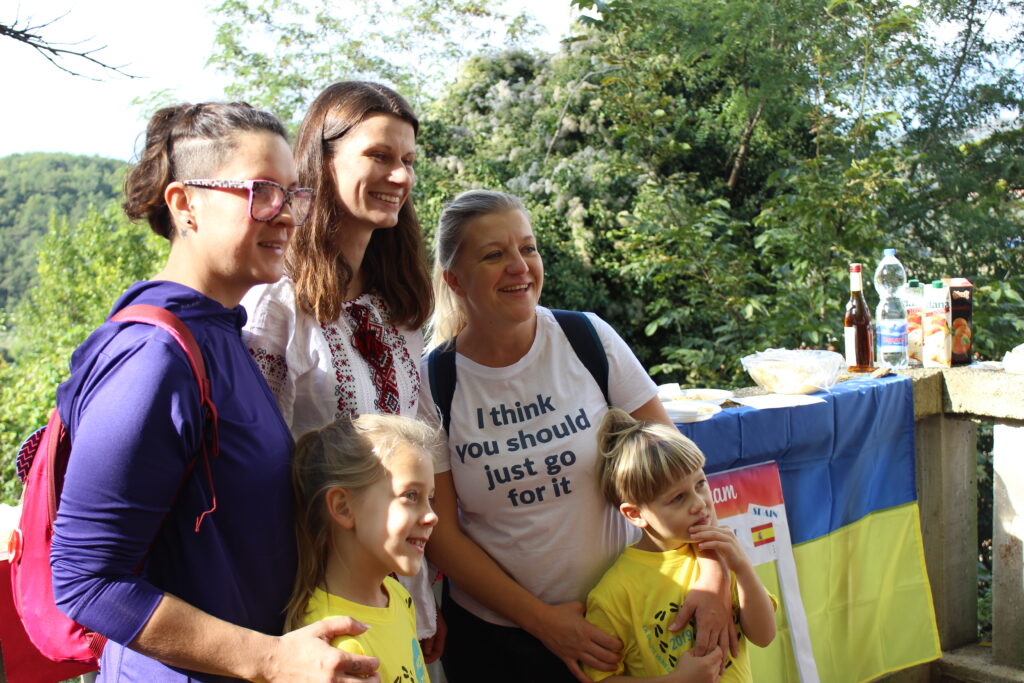 Kateryna Kravchenko attachment
Kateryna Kravchenko attachment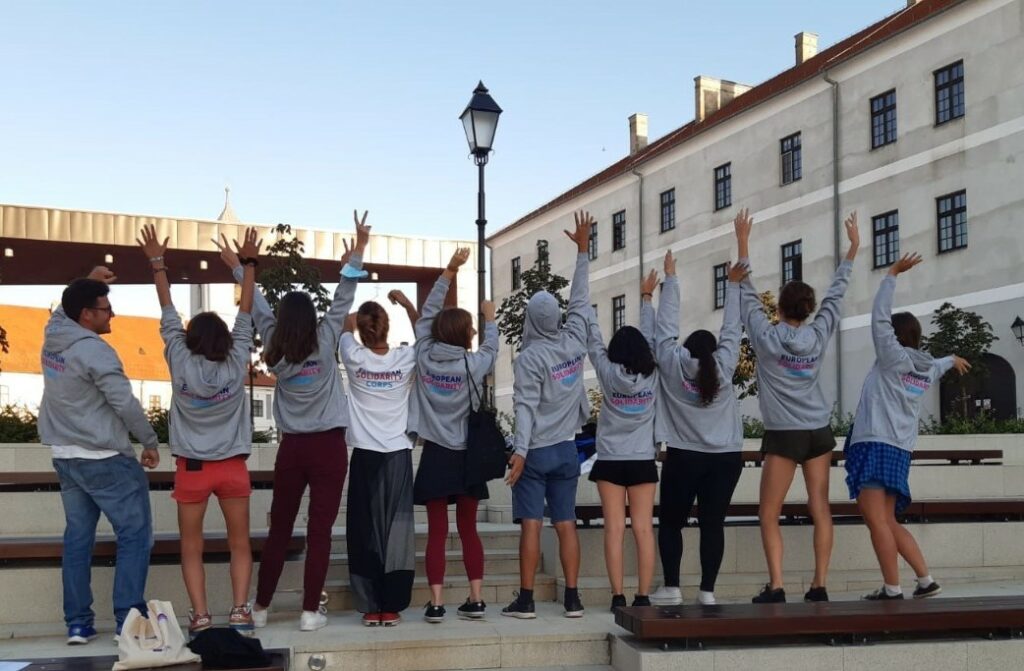 Kateryna Kravchenko
Kateryna Kravchenko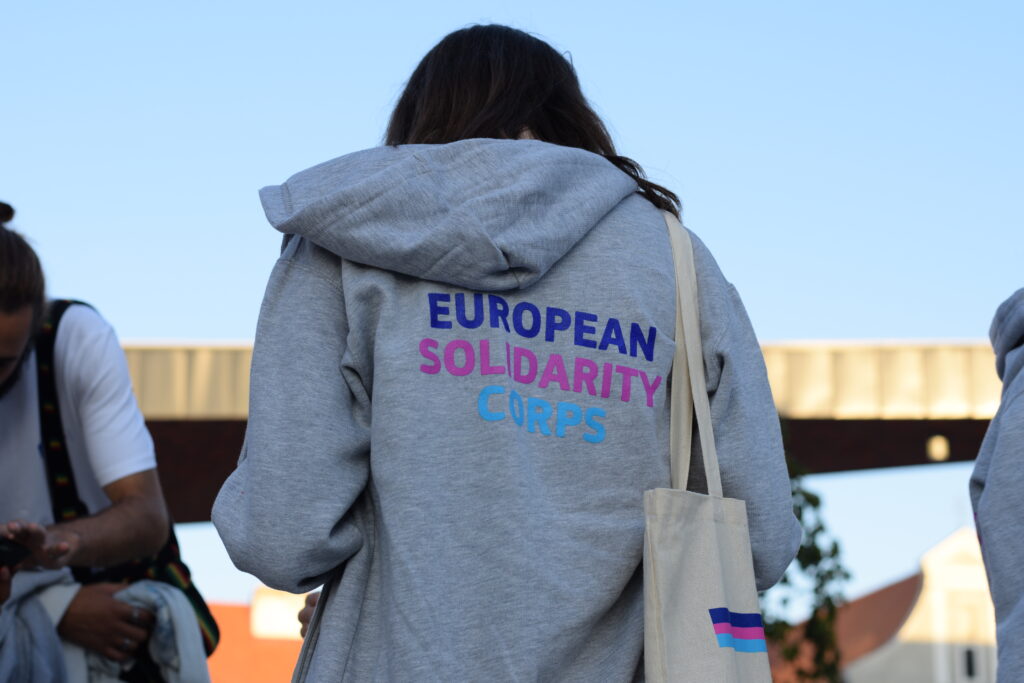 Kateryna Kravchenko
Kateryna Kravchenko
How is your ESC project going during the pandemic? Are there any restrictions?
“I was lucky to have two full months without restrictions during my voluntary service. It felt as if there is no pandemic at all: cafes and bars were opened, people were walking on the streets without masks, even travelling around was possible”, describes Kateryna Kravchenko her stay in Croatia at the beginning of autumn. “November covered Croatia with the second wave of the pandemic. That was the time when we needed to shift all our activities into digital format. Instead of usual events and workshops for youth, we would do the webinars and film educational videos. The common “see you soon” phrase was, therefore, replaced by “see you zoom” one”.
“It seems that in a year everyone got used to the coronavirus and adapted to the restrictions,” describes her time in Romania Halyna Nikitina. “At that time in Baia Mare, in contrast to Ukraine, there were strict quarantine restrictions:
– on the street, even outdoors, be sure to wear a mask;
– cafes and restaurants did not work, you could only order delivery or eat on the street.
Due to such restrictions, our free time has some changes. As we didn’t have the opportunity to go to local places and events, we organized our own evening events for volunteers. These were parties, zumba workshops, movie nights, board games, etc.
At the same time, the main program has also changed. We don’t spend a lot of time with the locals. However, other ESC volunteers from other NGO came to visit us and shared their own experiences, because they have already been vaccinated against the coronavirus.
On the weekend we could travel inside Romania. In two weekends I managed to visit 8 cities: Bucharest, Brasov, Sinaia, Sighisoara, Sibiu, Oradea, Cluj Napoca, Sighetu Marmatiei. However, some participants were under observation after entering the country.
In the last days of the project, some participants fell ill. Testing confirmed COVID-19, so they were forced to stay for treatment and observation for another 14 days in Baia Mare. It is good that the insurance covered it and the organizers helped with accommodation, food and other questions.”
Anna Trushkina couldn’t avoid the lockdown either: ”I came to Gaziantep in the time of maximum lockdown. The restrictions were limited as soon as I left the city to spend a week in Istanbul and return home. Lucky me!
In Antep, I have never sat in a cafe (apart from a few times when I did). The fine for walking without a mask was 3,000 TRL (12,000 UAH). Locals couldn’t go outside after 9 on weekdays and almost the whole day on weekends. On weekends, the police would stop you every five minutes to be sure you’re a tourist. But do not rush to hide your passport – after 100 meters a new policeman is already waiting for you.
We carried out activities with children, armed with masks and disinfectants. But other than that, everything was cool, and the quarantine did not spoil our great time together.”
“To tell the truth, it is the most difficult part,” reckons Kateryna Tarab. “First of all, I had to be in self-isolation during the first 10 days after my arrival to Poland. I had to download the application “Kwarantanna Domowa” and take selfies from home twice a day. After that, when I had already started the project, my flatmates got sick with COVID, so we stayed at home for about one more month. We hadn’t had a right to even throw the rubbish by ourselves.
Since the 27th of March to the 9th of April, all the kindergartens in Poland are closed (exceptions are valid only for kids of medical and military workers) and maybe there will be some exceptions for special kindergartens, but we don’t know yet.”
Anna Dovha: “There were a lot of restrictions due to the COVID-19 pandemic in Turkey but they didn’t make my volunteering experience worse.
On the one hand, it was a bit scary to almost not see people on the streets at the weekends. I was not able to visit museums and cultural places. However, on the other hand, what I really enjoyed was the opportunity to see nature with its full beauty and talk to locals while traveling. They were really happy to see some foreigners outside and usually invited us to have some coffee or lunch together. They wanted to socialize, and we were happy to share our volunteering stories with them.
Restrictions influenced our work in the volunteering center too. “Wearing masks, keeping social distance and washing hands” was our motto during the activities. Although I told kids many times about social distance, I could stop them hugging me after the classes.
Volunteers were also not allowed to have more than 8 participants during conversation clubs for Turkish youth. However, there were more people willing to practice English and learn more about different countries.
In the spring, restrictions were mitigated and I had a chance to enjoy Turkish tea in cafes and eat my favourite dish – güzleme on the nice street terrace. I saw children playing in the parks, teenagers having picnics and Turkish people traveling. Іt seemed that life had returned to normal.”
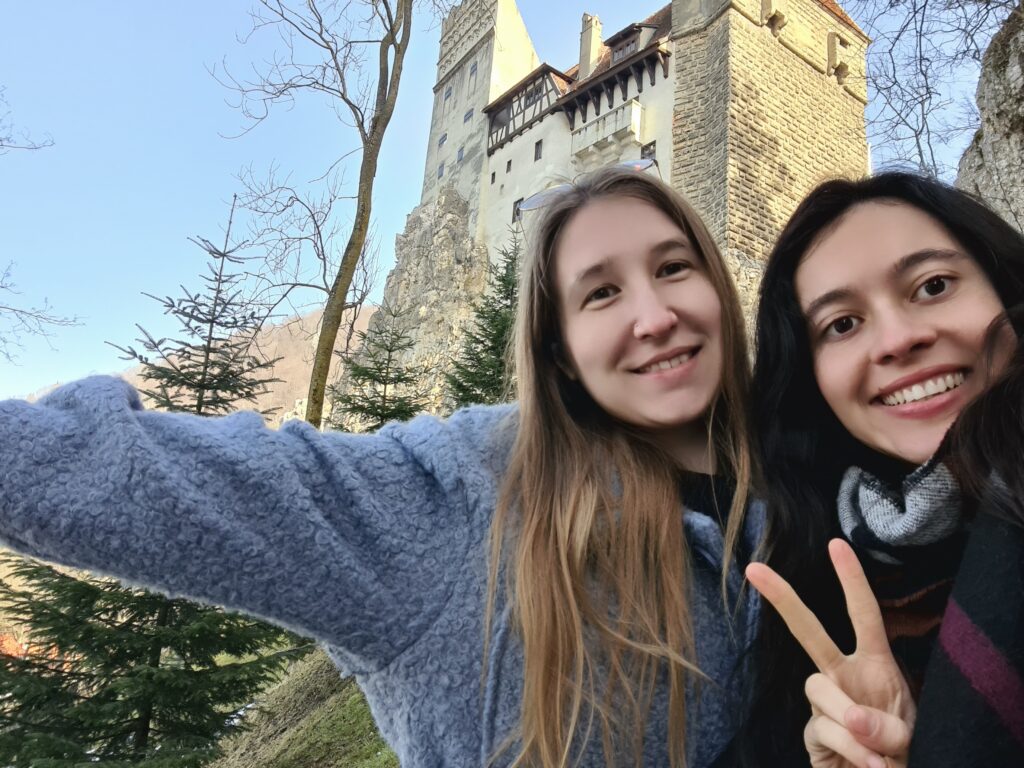 Halyna Nikitina
Halyna Nikitina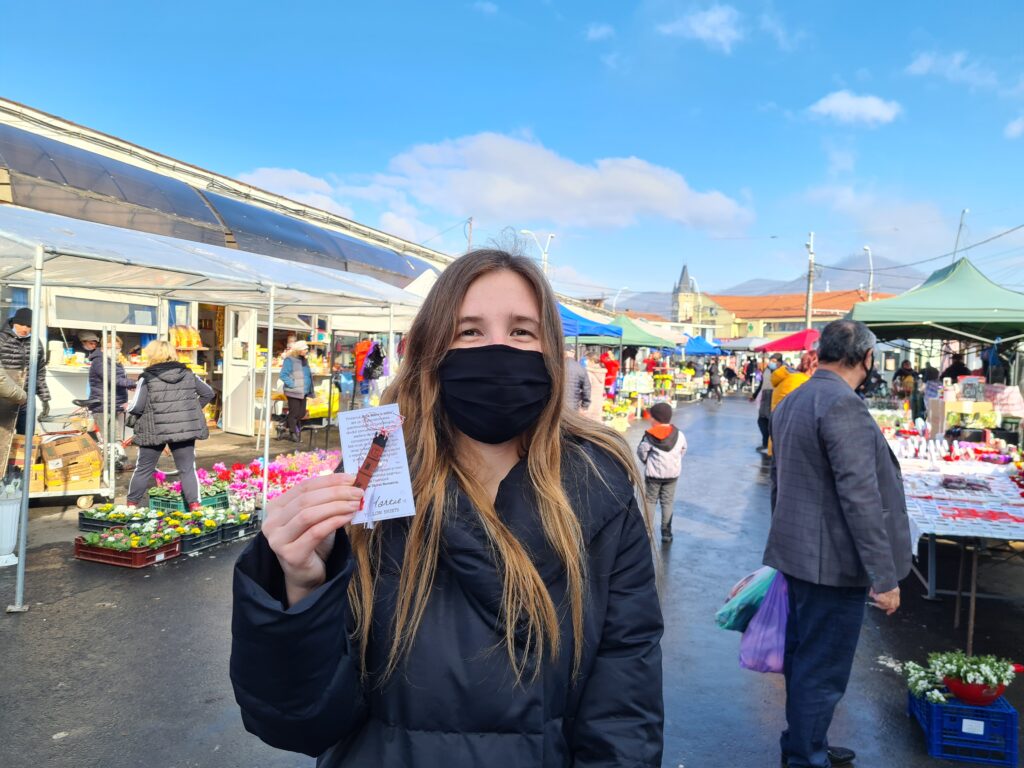 Halyna Nikitina
Halyna Nikitina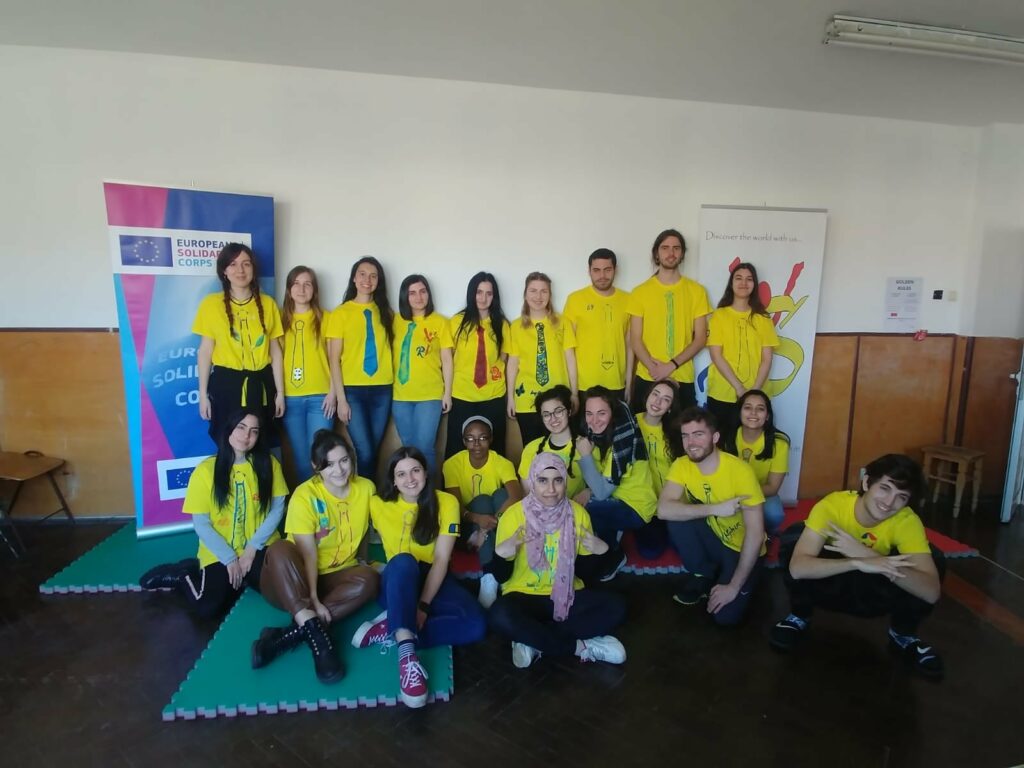 Halyna Nikitina
Halyna Nikitina
How did you decide to take part in such a project in times of the COVID-19 pandemic?
“Graduating in 2020 is not an easy task in terms of getting a job. Finding a volunteering project instead sounded like a good option that can bolster your skills and give you an advantage in the labour market later on. Moreover, it is a great adventure to explore another country and live an international experience! Croatia was a relatively safe place in terms of a number of COVID-19 cases back then as well. However, it is very important to look for a project itself, not a country. The ESC is long-term projects, applying for which one needs to understand all the responsibilities that come with such a commitment”, shares her experience Kateryna Kravchenko.
“On my bucket list, I had a point to try volunteering in the ESC program in another country. But I was either not selected for the project I applied for, or I was busy with work and projects in Ukraine. And during the COVID-19 pandemic, the number of available ESC vacancies decreased,” describes her dream Halyna Nikitina.
“In January 2021, I resigned from my old job, where I worked as a financier for 1,5 years to make a small time-out, relax and think about what I want to do next. So when I heard about this project I was very happy. I wasn’t afraid of COVID-19 and restrictions. It was a sign that this is the best opportunity for me to volunteer for a short time and be close to Ukraine. I knew for sure that this project would help me to take a short break in my professional career and give me the opportunity to understand myself. It’s like a gap from work – 21 days to change life.”
“I am a second-year student of special education, last year we started to sit at home and I needed more practice. So I decided to go,” explains her decision Kateryna Tarab.
“I wanted something new and didn’t want to spend two months of vacation in Ukraine. It was scary, but more because of the city location (scary tales about the Syrian border), and not because of the lockdown. But overall, everything turned out great,” recalls Anna Trushkina.
“Being online and not seeing people made me feel nervous. So I decided that I literally need these real conversations and spending time outside. Besides, I love volunteering, implementing projects and sharing my ideas. The ESC volunteering was definitely the experience that I wanted to have even before the pandemic. However, I had no idea how to combine my university, job and this wish together. When everything was online and I saw a chance to make my wish come true. It was the right choice.” reveals Anna Dovha.
What are your general impressions of the project? What did you like the most?
“Ceteris paribus, ESC volunteering experience in non-pandemic times could have been much brighter. Yet I would definitely give credits to my hosting organization that tried to adjust and be flexible with the working schedule during such an extreme time. I would say that people are one of the most important ingredients in this ESC volunteering cocktail, and I got lucky to have nice co-teamers from France and Spain. In times of lockdown, those are the first faces you see daily not only while working but also while preparing meals and defining the free time activities.
The best experience was sharing a road trip with the other volunteers around the coast of the Adriatic Sea at the beginning of my volunteering term. Thus, if I were to recommend something to the future ESC volunteers, I would definitely suggest to seize the moment and take any opportunity to travel and explore. After all, you never know when the next lockdown is happening”, concludes Kateryna Kravchenko.
The pandemic greatly affected the voluntary experience of Kateryna Tarab: “I haven’t been that much on the projects yet as I mostly had to quarantine. But I like my work in the kindergarten, I like people I meet, other volunteers, but I cannot travel, see Warsaw (where I currently live) and the feeling of unpredictability forced me to take more care of my mental health”.
“Most of all I liked the people, volunteers, organizers and locals. Because they create an interaction that gives an opportunity to explore the history of the city and local culture. We got to know each other and ourselves better in the process. We replaced trips to bars and cafes with home parties,” recalls Halyna Nikitina.
“We cared more about each other’s safety than about our own. Not only that, but we celebrated Dragobete (Valentine’s Day in Romania) and Martisor (the first day of spring in Romania) and even one birthday together. We taught and supported each other. I would also like to mention the excellent work of the organizers, who provided us with good living conditions and a cool program.
I feel that this experience has taught me to value simple things more and turn limitations into opportunities. Hopefully, next time my ESC volunteering will be longer! And I recommend everyone to choose a volunteering project in accordance with their interests and take at least six months to dive deeper into the culture, learn the local language, and make new friends.”
“It was just woow, one of the best experiences of my life!” exclaims Anna Trushkina. “I became attached to children, to youngsters from the conversation club, I found awesome friends and traveled all over southeastern Turkey. I found a home and a family with whom I can meet anywhere in the world. I wholeheartedly recommend you to apply for such projects and try new things – and the weirder, the more interesting!”
“I couldn’t even imagine that 2 months can be so bright!” says Anna Dovha. ” Volunteering in Gaziantep did not teach me economics, mathematics, programming or anything else. But it had a very strong impact on my personality, on my attitude towards refugees, gave me a better understanding of the life of different social groups and what I would like to do in the future.
ESC in Gaziantep helped me realise how much you can get through volunteering. It is not only about your own development, but rather about this amazing feeling that you get. Without understanding properly Arabic and Turkish, volunteering made me feel that I belonged to this society. I had my mission and became a part of that community. “
Even though an experience of volunteering abroad is certainly different now from the pre-pandemic times, the stories of our volunteers show that nothing is impossible! To find out more about the ESC projects as well as to choose one, follow the link leading to the official ESC portal: https://europa.eu/youth/go-abroad/volunteering/opportunities_en.
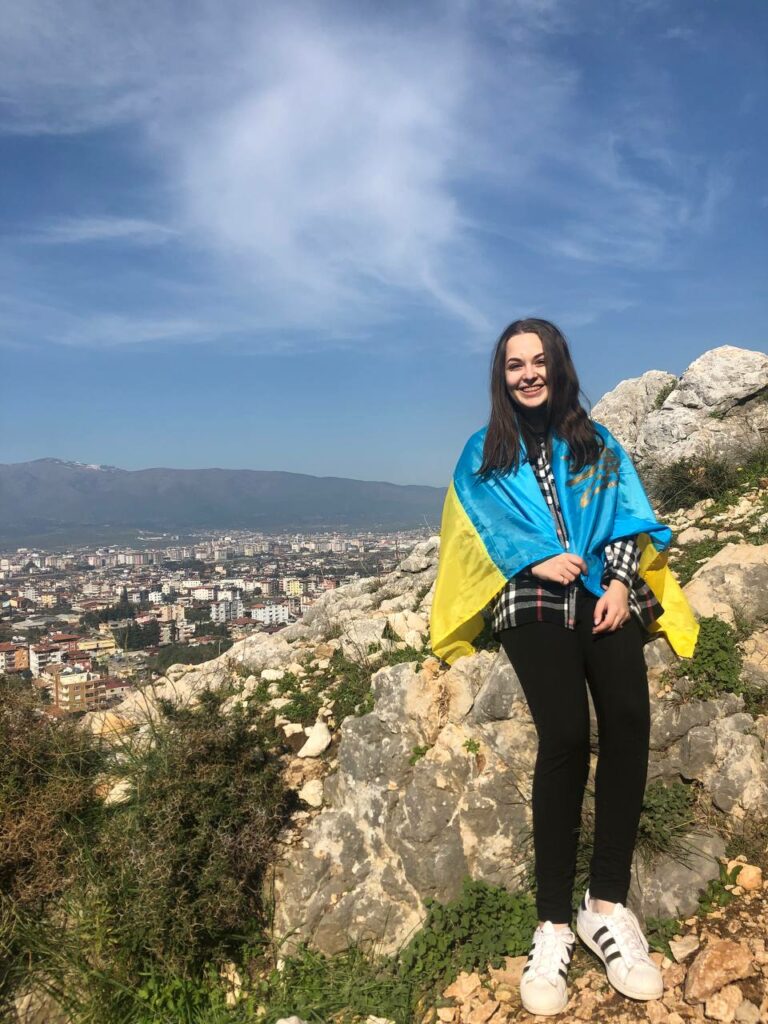 Anna Trushkina attachment
Anna Trushkina attachment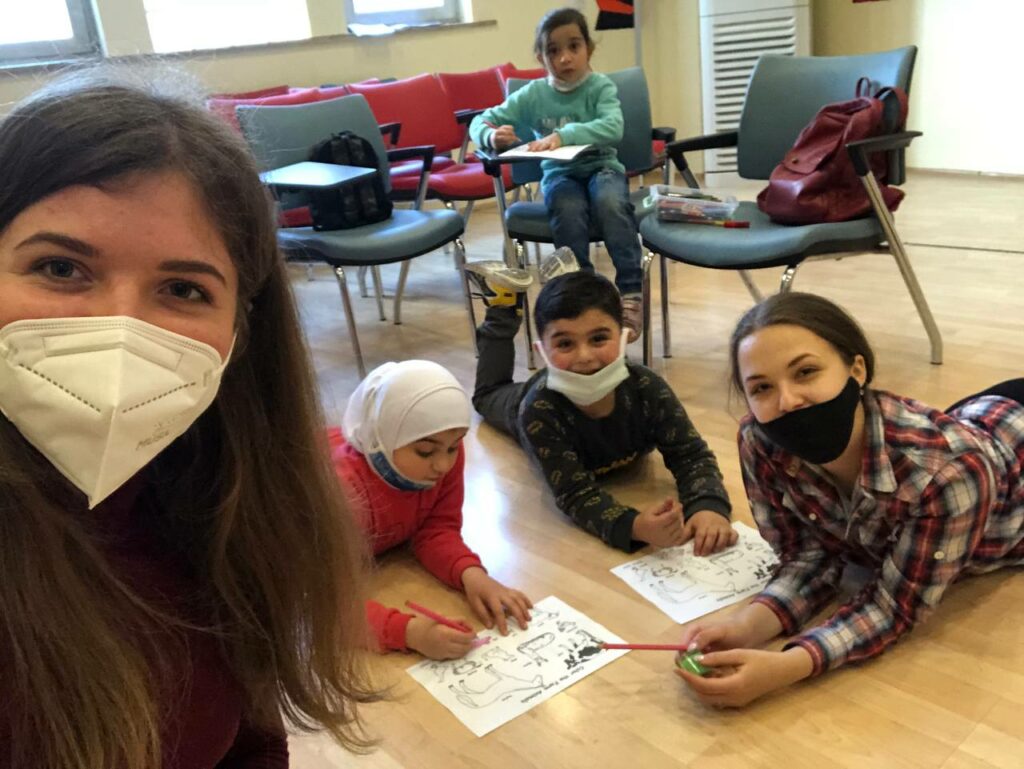 Anna Trushkina
Anna Trushkina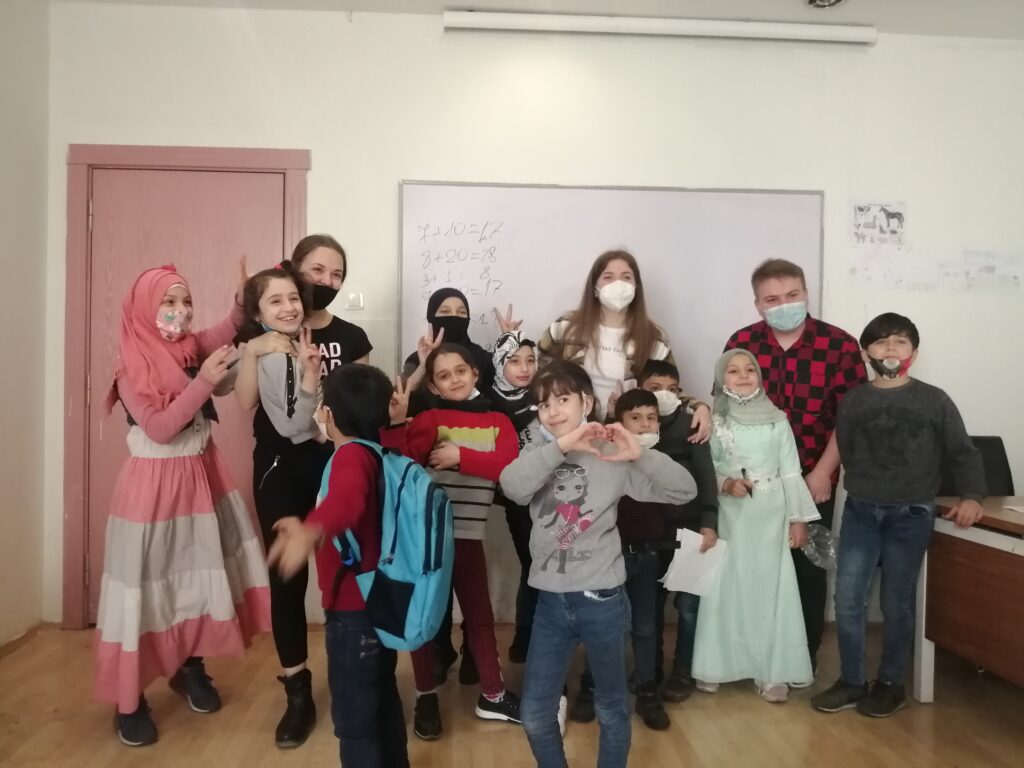 Anna Trushkina
Anna Trushkina
LATEST

Building Europe: Poland’s experience of joining the European Union and lessons for Ukraine

World Health Day 2024: My Health, My Right

EUREKA MEETS EUROPE – opportunities to develop and study. My experience

Can you wear pink in the workplace?
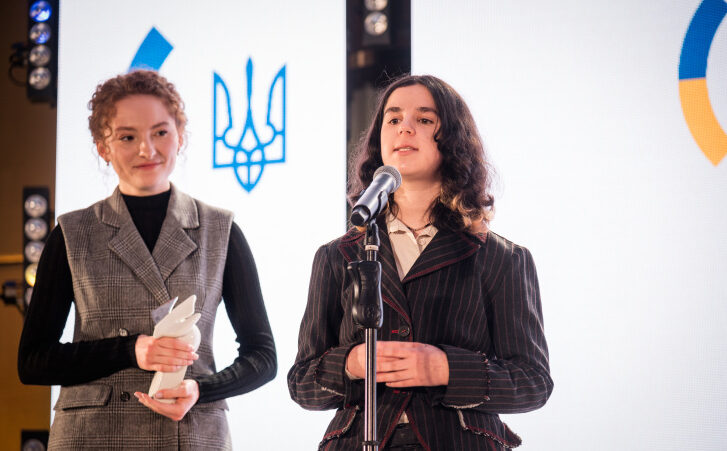
Go where your deepest fears lie: finding the courage to overcome gender barriers in STEM
More campaign pages:
Interested in the latest news and opportunities?
This website is managed by the EU-funded Regional Communication Programme for the Eastern Neighbourhood ('EU NEIGHBOURS east’), which complements and supports the communication of the Delegations of the European Union in the Eastern partner countries, and works under the guidance of the European Commission’s Directorate-General for Neighbourhood Policy and Enlargement Negotiations, and the European External Action Service. EU NEIGHBOURS east is implemented by a GOPA PACE-led consortium. It is part of the larger Neighbourhood Communication Programme (2020-2024) for the EU's Eastern and Southern Neighbourhood, which also includes 'EU NEIGHBOURS south’ project that runs the EU Neighbours portal.

The information on this site is subject to a Disclaimer and Protection of personal data. © European Union,